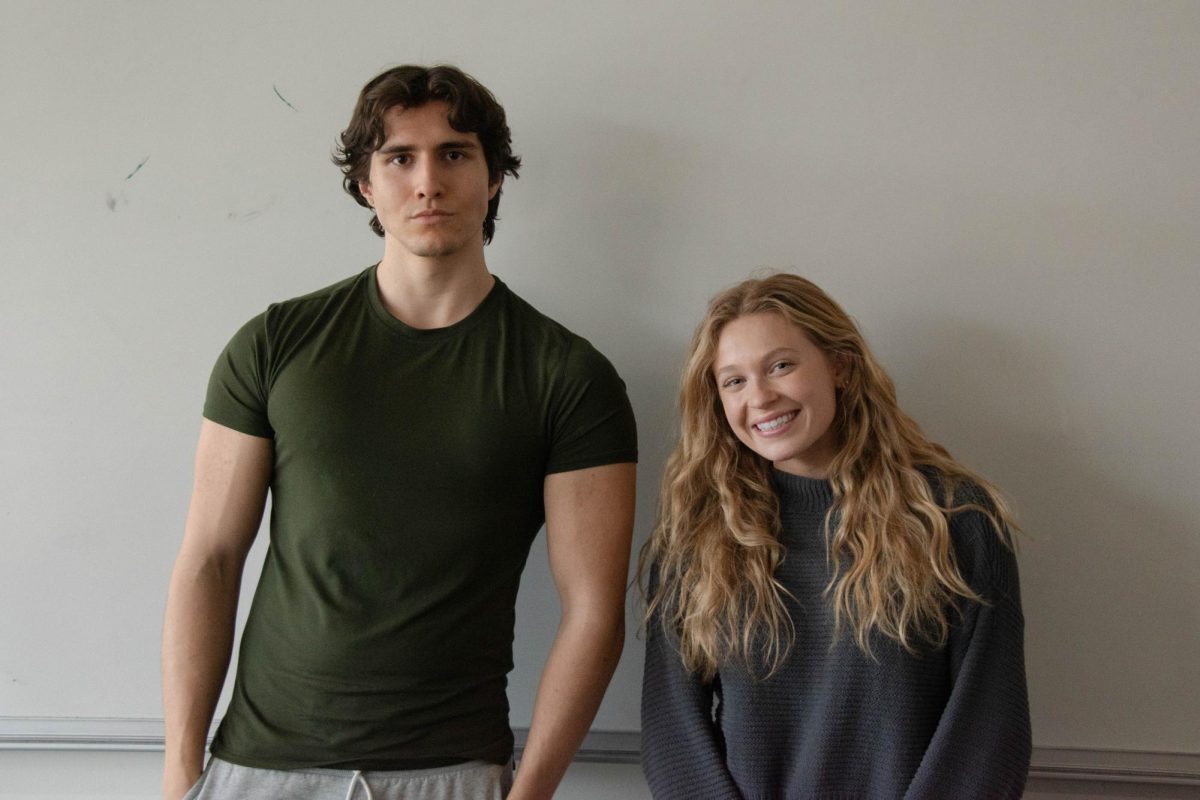“Environmental Club” of Winona State University is a prime example of there is more to it than just its name. The WSU Environmental Club is more than your average sustainability clubs. Here, the club and its leaders (two incredible presidents) are pushing the sustainability agenda along with providing practical and theoretical opportunities for students who are pursuing majors/minors that are related to environment or sustainability, while keeping fun activities and experiences which helps the non-environmental majors to feel included and equally wanted in the club.
While they have an executive board, they have quite a few subgroups among them to function more effectively, as they got over 100 members to plan and organize for. Through an interview with the presidents, information was gathered on how the club is managed, and they had additionally commented on what sort of events they organize and plans for the club going further into the semester.
Taylor Deitz, a biology environmental science major and co-president of the environmental club, commented on purpose of the club.
“Overall, I think we aim to provide educational opportunities for students surrounding sustainability, as well as fun activities and really getting hand on experience, like going hiking outside,” Deitz said.
Eli Hovorka, a pre-nursing major and the other co-president, discussed a few more options that members get to explore throughout the semesters.
“[There are also] trash cleanups to make the campus look nicer (right after homecoming or game days) or watching documentaries. [A] recent one was on climate change,” Hovorka stated.
Although so far it might only seem like a fun organization led and organized by students, they mean serious business when it comes to making big impact here on campus. From covering events like pumpkin paints and documentary watching to garden and trash cleaning and planting seeds, they have way bigger plans to execute. To help members decide what they might lean towards more to work with, they create subcommittees like arboretum and compost committees.
“This year, we are partnering with the WSU Arboretum, so we have the arboretum subcommittee as well as on campus the compost subcommittee who got composters that Chartwells food waste goes to, drop off zones in the dorms for food collection,” Deitz said. “So, students who are specifically interested in one or the other can be more involved in those specific group.”
Not only that, but the environmental club also has more credit to their name at WSU campus. It is not unknown to anyone who has been to the Winona State University campus that how beautifully the landscapes here are. But unknown to many, the WSU arboretum doesn’t get all the credit for this. The first ones to adopt and take care of a garden on campus were the environmental club. Currently, everyone is welcome to take care of the garden alongside the members. They also have plans to plant this spring semester at children’s garden near the water fountain.
“Other than that, another part of the environmental club is, we have a few members each year, go to all university sustainability committee where they are charge of helping to appoint the sustainability director,” Hovorka said.
At present, the position of sustainability director is empty, but the previous director has done quite an impressive and impactful job; he is the one to set up all solar panels. The LESS (Leading Energy Saving and Sustainability) project was led by him which is still making a huge impact on the finances of the university (saving millions of dollars).
This club is not only making a safe space for students to learn, have fun and socialize, it is also advocating for impactful project that will bring immense change on not only the WSU campus but Winona itself. As a university with thousands of students living on and off campus and faculty living mostly in Winona, carbon footprint is something to pay attention to. With the help from environmental club, last project alone, they have brought down the carbon footprint by 25.4%. The water waste has reduced by 16.4%.
As for the future, they have tons of plan already. The academic building composters, flower beds accessible to people to submit their ideas or request to put specific kind of flowers. But the most eye catching one is an ‘Adopt a Garden’ champaign; this is to help other clubs adopt gardens on campus if they want to.
“I think it will be really cool long term to see environmental club be responsible for having permanent impacts like adding a compost bin along with trash and recycle bin, where using compost bins becomes generalized,” Co-president Taylor Deitz commented.
































































